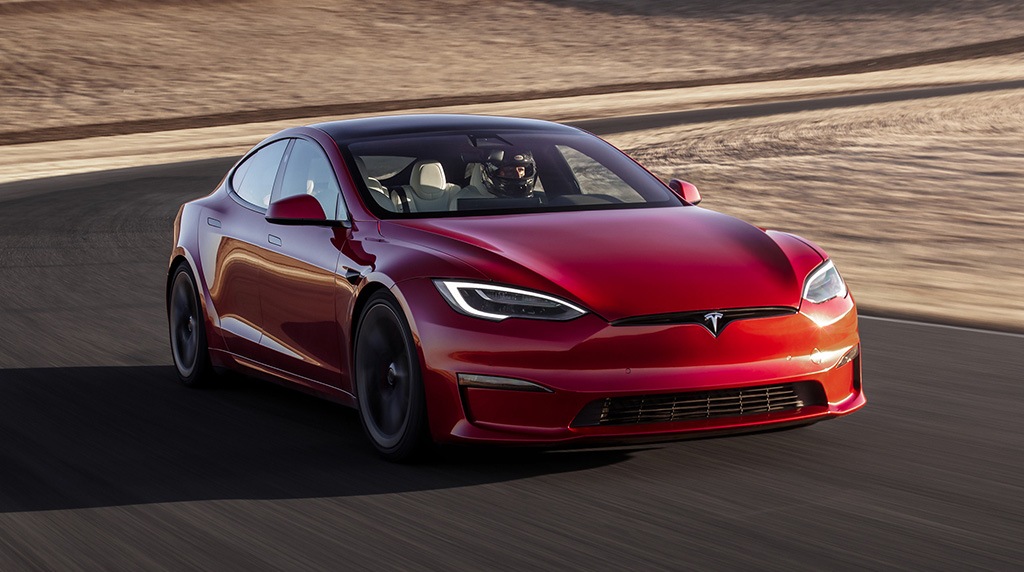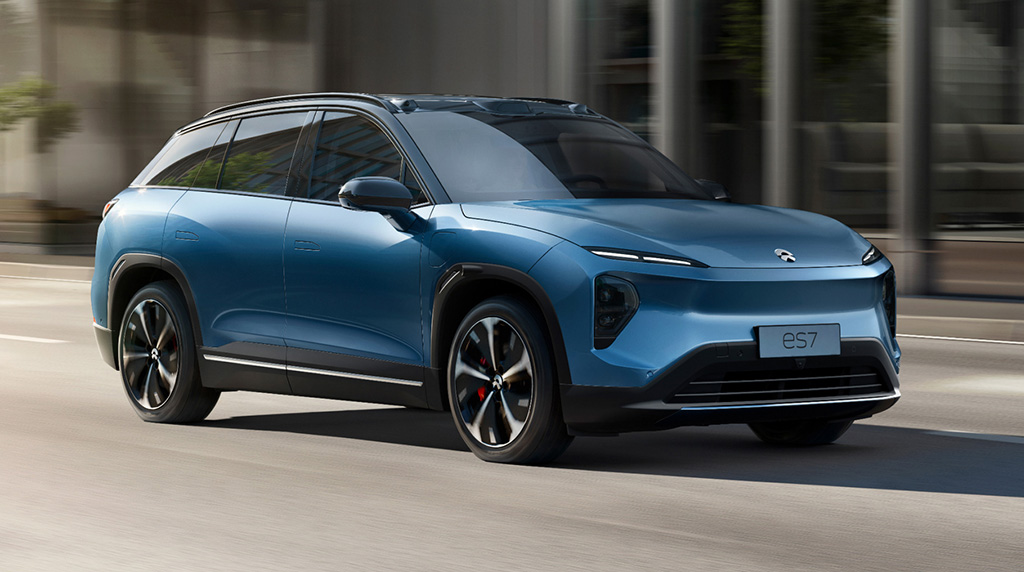SIX of the world’s electric vehicle players have lost a combined $US1 trillion ($A1.48t) in market capitalisation in the past 12 months in a trend that could mark the beginning of realistic company valuations and changing shareholder perceptions of EV manufacturers.
The six companies – Tesla, Nio, Xpeng, Lucid, BYD and Rivian – are pure EV players that have been battered by a share market seemingly becoming impatient with ongoing corporate losses and production problems that have delayed many models reaching customers.
Much of the attention is taken up by market leader Tesla that has become the bellwether for the other EV companies. Market reactions to Tesla – good or bad – are generally repeated in the share price of the other EV companies.
In an interview with Auto Economic Times, former Nissan executive Andy Palmer – who launched the Leaf in 2010 and until recently was the CEO of EV specialist Switch Mobility – said the market capitalisations of companies such as Tesla and Rivian – but, he stressed, not BYD – “has been over-priced and due for correction.”
“You can now see that the traditional car companies, at much lower market capitalisations, (are starting to) demonstrate their EVs in the market and in some cases they are better than that of the startups.”
For Tesla, its share price is down 43.47 per cent from 12 months ago and its market capitalisation is down about $US650 billion ($A963.5b). In perspective, that loss figure is more than four times the total market capitalisation ($US149b or $A222.59b) of BHP.
Of interest is that despite Tesla’s present capitalisation of $US600 billion ($A889.4b) – it was $US1.25 trillion ($A1.85t) a year ago – and its marketing profile as the world’s leading EV manufacturer, it produces fewer cars than BYD.
Tesla’s capitalisation is spiralling despite increases in production, shown by its 930,400 output in 2021 which was up 82.5 per cent on 2020. This year to date November 1, the company has made 929,910 cars, up 42 per cent on the same period in 2021.
Mr Palmer in a podcast interview with Gravitas Detroit last month, said a lot of EV startups will fail and much of that has to do with the culture of the company.
He said that the inevitable transition to EVs would “require new companies to come into being and old companies to turn themselves into new companies.”
“Most of the startups will fail,” he said.
“They will fail partially because they’ve misunderstood the complexity of designing and making cars, but also because they haven’t got their culture right.
“And some of the old companies that are turning to EVs will fail, not because they don’t have the technical capability, but because they haven’t engendered the cultural capability to work with that change, or have not even believed in the change.
He said they were making EVs with a 20 year old mindset of compliance vehicles and that, even if the corporate culture is right, that will still not guarantee success.
“Perhaps a 70 per cent possibility of success,” he said”
“Car companies have to set the tone and the culture of the company so you have people that know what they’re working for, they like what they’re working for, are consistent in what they’re working for, and have the energy to deliver what they’re working for.
“The practical skills of how to make a car, to some extent you can buy or you may already have, but how you turn it into a revolutionary vehicle is I think the real skill.”
EV companies that have failed include Fisker which started in 2011 with its Karma plug-in but because of issues including the high price – twice the cost of a Tesla S – it received poor buyer response.
This was followed by its battery supplier A123 Systems going into bankruptcy and closing Fisker’s production line.
Fisker went bankrupt in 2013 and sold the assets to China’s Wanxiang Group for $US149.2 million ($A221.16m). The Chinese company started production of its Revero in September 2016 but halted production in April 2019 on a recall and stop-sale notice over airbag malfunctions. It has not resumed production.
There is also Faraday Future which started in 2015 and attracted executives from car rivals including BMW. It planned production of the FF91 SUV in early 2018 but hit financial problems blamed on aggressive money borrowing.
The Dyson EV was a proposal by Dyson vacuum cleaner owner James Dyson and centred on solid-state batteries. The N526 was a seven-seat SUV that sucked a lot of personal funds of Mr Dyson but was cancelled when it was found to be too expensive to market.
How the EV companies are performing:
TESLA: Loss: $US652 billion ($A966b) – Its share price has dropped 43.47 per cent in the past 12 months to $US190.95 ($A283) which has cut its market capitalisation to $US598.34 billion ($A886.91b), down from around $US1250 billion ($A1853b) a year before.
NIO: Loss: $US50 billion ($A74b) – One of the more recent Chinese EV players has seen its share price fall 72.47 per cent in a year, from $US42.04b ($A62.32b) to only $US11.17 ($A16.56b) and a resulting drop in its market capitalisation to $US18.66 billion ($A27.7b) , down about $US50 billion ($A74b).
XPENG: Loss: $US39 billion ($A58b) – Another rising star that has felt the Tesla effect with its shares now $US8.64 ($A12.81), down 81.81 per cent from its $US54.37 ($A80.60) price 12 months ago. The market capitalisation is now $US7.45 billion ($A11b), down from the heady $US46.5 billion ($A68.9b) a year ago.
LUCID: Loss: $US73 billion ($A108b) – The share price has shrunk to $US12.21 ($A18.10) from its $US55.52 ($A82.30) a year ago, a 72.79 per cent plunge, while its market value is now $US20.5 billion ($A30.4b), down from $93.3 billion ($A138.3b).
RIVIAN: Loss:- $US127 billion ($A188b) – The EV ute and SUV maker has a share price now of $US34.38 ($A50.96), down 76.98 per cent from $US172 ($A255) a year before. This has impacted on its market value which is now about $31.7 billion ($A47b), down from $158.4 billion ($A234.8b) a year ago.
BYD: Loss: $US79 billion ($A117b) – Its share price is now $US263.79 ($A391), down marginally from the $US294.94 ($A437.20) of a year ago though off its $US358.86 ($A531.93) high reached in June this year just before major shareholder Warren Buffet’s Berkshire Hathaway reduced its stake to under 20 per cent. Berkshire sold more shares earlier this month and now has 16.62 per cent of BYD and has not ruled out further sales. BYD’s market capitalisation is $US681.85 billion ($A1010.7b), down from $US761 ($A1128b) a year before.
By Neil Dowling




